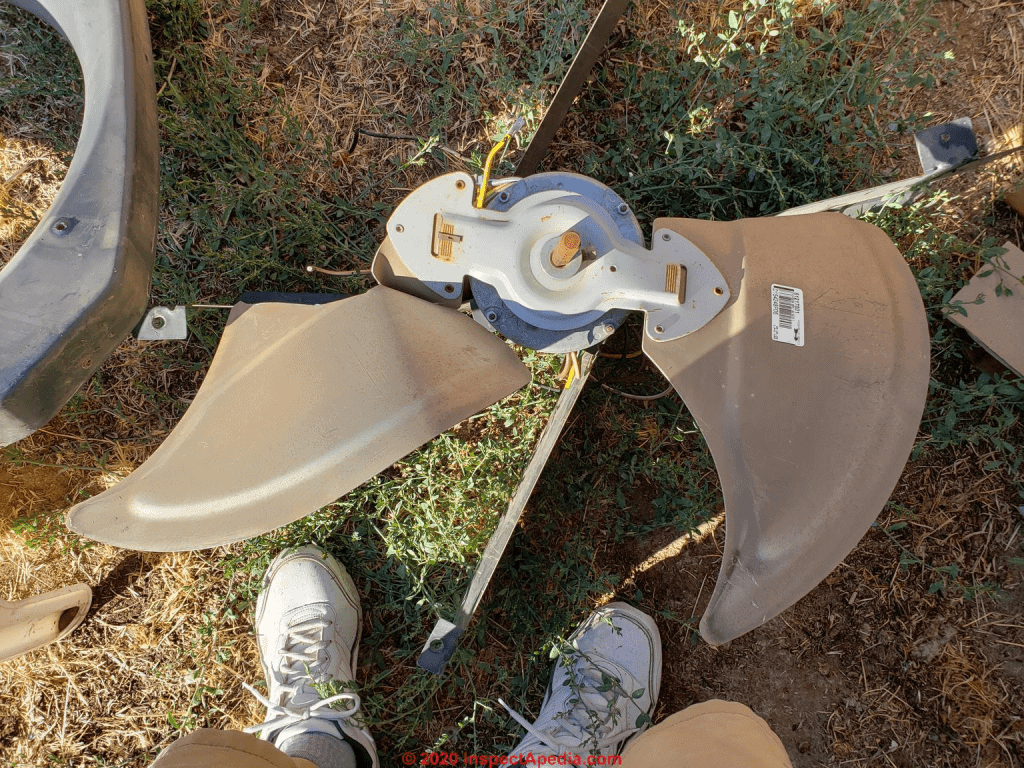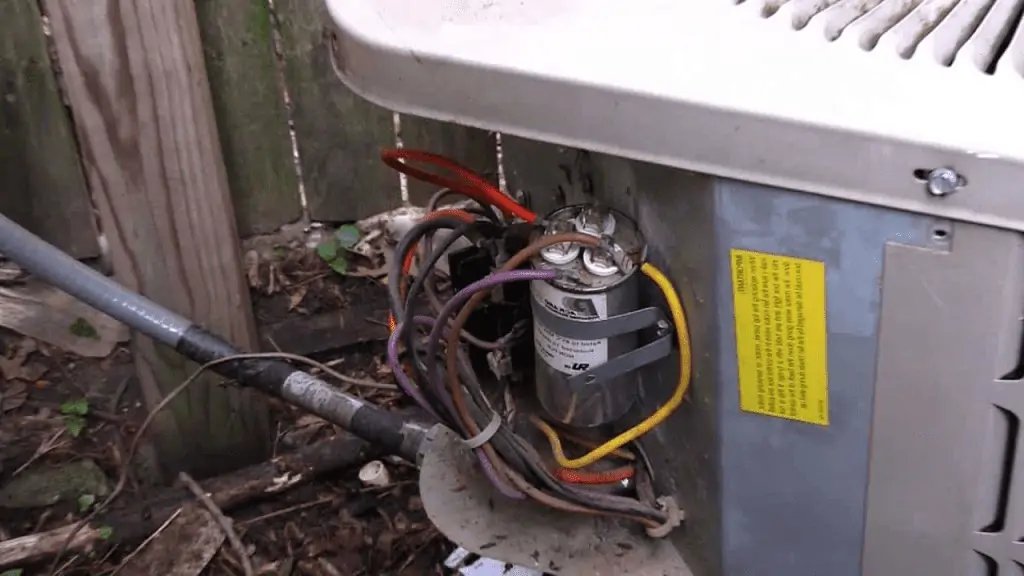Share This Guide
It’s scorching heat outside and your AC is the only thing that’s keeping you alive. But what do you know, it also stopped working. Perhaps, the capacitor is gone!
Okay, you replaced the capacitor. Everything should go fine now. But still, it’s not working as expected!
Why isn’t the AC unit replaced capacitor still not working?
The AC unit-replaced capacitor is still not working because it has a damaged fan inside. To solve this, you have to check the power flow of the compressor. Again, an overheated compressor can also be the culprit. By bypassing the defective thermal switches, you’ll be able to solve the problem.
Can you guess how to do it? Well, you don’t have to guess anymore because I’ve got a whole article for you. Keep reading to find your preferred AC unit fix.
How do I Know if My AC Capacitor is Not Working?
Replacing your AC capacitor is a good way to fix your AC problems. It’s because most of the time, the reason behind AC issues is a bad capacitor.
But sometimes it seems like the capacitor is not working even after replacing a new one!
So, how could you be sure that the problem is with the capacitor, not any other part of the ac? Well, here is a checklist for you that will help you detect a bad capacitor-
- Your Air Conditioner is constantly making humming noises
- You notice a burning smell or smoke coming out of the exterior of your AC
- The room doesn’t get cold enough.
- You’re receiving high energy bills without any apparent cause
- The AC doesn’t easily start.
- You notice random shutdowns in your AC.
Did you notice any of these signals lately? If you do, you must know the reasons too! In the next segment, I’ve shown what causes a blown ac capacitor.
What Causes a Bad AC Capacitor and How to Fix It
In this section, I’ll address those reasons that turn good capacitors into bad ones. I’ll also disclose the solution for each problem-

Reason 1: Having a Damaged Fan
If your AC fan is damaged, it will affect the performance of the capacitor.
Now, how would you identify a bad ac fan?
You’ll notice that the fan is not spinning at all. The compressor will also stop creating a humming sound sometimes.
Another scenario is that the fan spins very slowly because of debris. Having debris inside means the airflow is restricted. This slows down the fan heavily. Along with slow movement, the fan may make some loud noises too!
If you find any of these two signs, that indicates a broken or bad fan.
Solution: Check the Power Flow to the Compressor
First of all, you have to check if the compressor is receiving proper electricity flow. Then again, you should check the circuit breaker.
Take the help of an HVAC professional and analyze the voltage of the contractor. You’ll be able to identify the problem.
Next on, you also have to clean all the debris inside. Once it’s all tidy, use a stick to push the fan. An analog spin will help it get back its speed.

Reason 2: Having an Overheating Compressor
Compressors can be overheated at times. Because of a heavy flow of Freon, the copper lines get blocked occasionally. Your bad compressor or capacitor can cause overheating too. However, it is a rare case.
There is a thermal switch in the compressor. When there is a defect in the switches, they create the Freon blockage. As a result, the compressor gets shut down immediately.
Now, there is a way to get through with this.
Solution: Bypass the Defective Thermal Switches
First, you have to identify if the thermal switches have any defects in them. Take the help of an HVAC technician in you to have not had any troubleshooting experience before.
Once a bad thermal switch is detected, the only solution is to completely replace it.
Some of the best thermal switches are recommended below-
- A modern-day reliable thermal switch is Honeywell Home Programmable Thermostat. You can check the price on Amazon.
- Another reliable replacement for that is BN-LINK Digital Cooling Thermostat Controller. You can check for availability on Amazon.
- If none of those hit your preference list, then check out EconoHome Adjustable Thermostat. You can check the price of the product on Amazon.

Reason 3: Having Connection Problems
Another reason your AC unit is not working is having connection issues. The wires on the board might be loose. So, your AC is not getting any electricity supply.
In these cases, you shouldn’t be too worried. This is a very common problem that has an easy solution.
Solution: Reconnect the Wires
So, the problem isn’t because your AC has internal problems. Rather you can call it a silly mistake.
So, the main solution here is to identify the loosely connecting wires. You take them out of the socket. Then, plug them in again. Your AC unit should work just fine.
Frequently Asked Questions (FAQs)
Here are some common questions people ask on today’s topic
How often should you replace an AC capacitor?
You should replace an AC capacitor every 20 years. When an AC capacitor gets old, it wears out quickly. If you use a worn-out AC capacitor, it will not perform as expected. Like, a worn-out AC capacitor might get blown and not cool the temperature enough. So, replace the capacitor every 20 years.
Can I run my AC without a capacitor?
No, you cannot run your AC without a capacitor. A capacitor is the main functional component of your HVAC system. Having trouble with the capacitor means you’re having trouble with the entire system. Usually, when your AC starts showing issues, chances are your capacitor has gone bad.
Can an AC compressor start without a capacitor?
An AC compressor can not start without a capacitor. We’re talking about the motor-run capacitor here. It’s because there will be a problem with the Hard-start Kit. This kit will briefly replace the compressor when the capacitor is restarted. As a result, the compressor will get overheated quickly.
Final Words
So, I hope you understand now why your AC unit replaced capacitor still not working. You must identify if there are internal problems rather than a bad capacitor.
With the help of this article, you will be able to do some quick fixes. But I will recommend consulting with a tech guy before you do anything.
Each problem requires different solutions. And chances are you might damage the AC more as a novice. So, try to keep an HVAC specialist on call. You’ll be able to fix the problems right away!
HVAC tech with over 30 years of experience. Retired and doing repair work on the side around Madison County, AL.